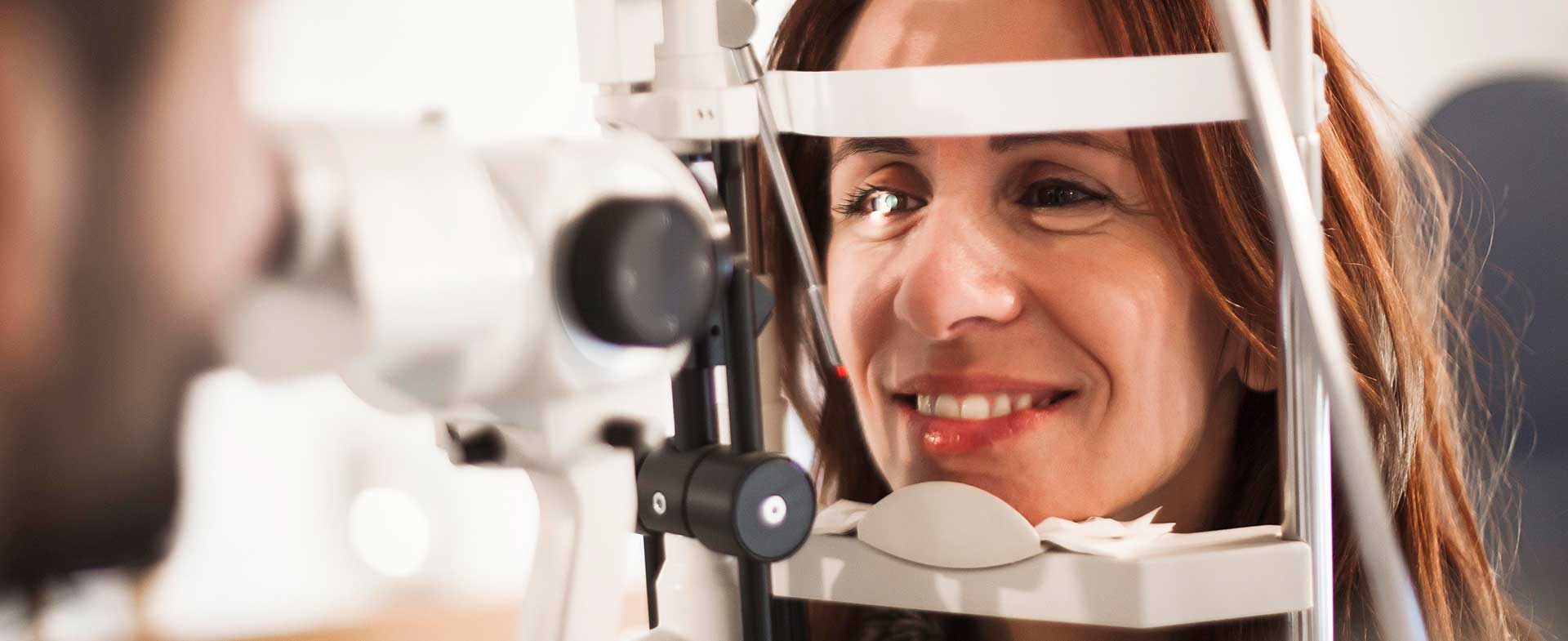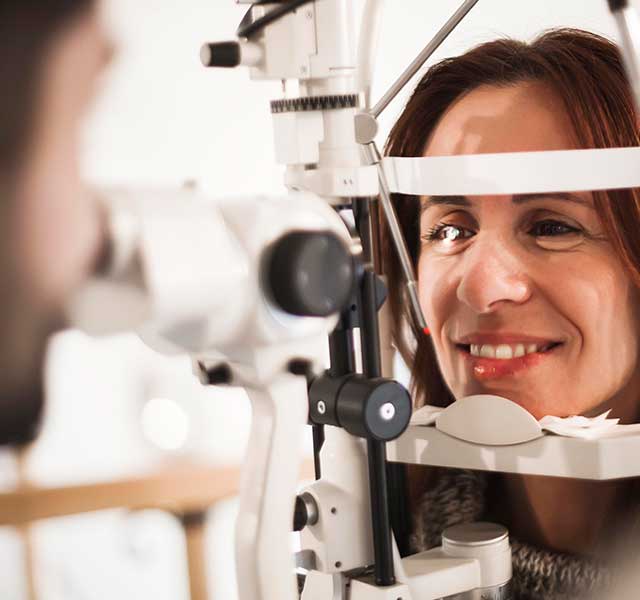It’s no secret that America is graying, as Baby Boomers get older and the balance of seniors vs. children and younger adults shifts. But what you may not know is that the risk for several eye conditions increases before you may think of yourself as a “senior.” Long before.
“Turning 40 is a milestone, and it’s also the age when you may start to notice changes in your eyes, even if you’ve never had any problems with your vision,” says Melisa Nika, M.D., a comprehensive ophthalmologist and glaucoma specialist at Henry Ford Health. “In addition, since some eye diseases have no symptoms in their early stages, you may not know you have a problem until the condition is more advanced, when it’s harder to treat.”
5 Conditions That Can Affect Your Aging Eyes
- Presbyopia: When you have to reach for readers to focus on near objects, it means your eye’s natural lens is losing its ability to flex. This is one of the most common conditions that affects aging eyes. In addition to readers, you can get prescription glasses or contacts to correct this. There are also elective procedures that swap out your natural lenses for artificial ones.
- Eye floaters: These annoying little spots floating across your vision move as the eye moves, making it difficult to focus on them. While often harmless, they could be a sign of a more serious condition, especially if they are accompanied by other symptoms.
- Cataracts: A cataract is a clouding of the normally clear lens in the eye. This can cause several symptoms, including blurry vision, halos or a starburst effect around lights, and poor night vision. Everyone will develop cataracts as they age. While this often happens after age 60, some people may begin developing them in their 40s or 50s. Surgery is the only effective option.
- Glaucoma: This condition is the leading cause of irreversible blindness worldwide and occurs more frequently in people over the age of 40. It’s most commonly caused by a pressure increase in the eye that damages the optic nerve, which carries visual information to the brain.
- Age-Related Macular Degeneration: This affects the macula, the center of the retina, and is a leading cause of vision loss in older adults. Unlike glaucoma, AMD does not lead to complete blindness if left untreated, but it can cause you to lose all of your central vision. Without this, you are left only with the ability to see out of the corners of your eyes. This can limit your ability to see fine details and cause significant loss in your quality of life.
When It’s Time To See A Doctor
The American Academy of Ophthalmology (AAO) recommends that adults with no signs or risk factors for eye disease receive a baseline eye disease screening at age 40. However, regardless of your age, if you have any of the following risk factors, the AAO recommends checking with an ophthalmologist to determine how frequently your eyes should be examined:
- Experiencing symptoms of eye problems
- A family history of eye disease
- Existing health conditions such as diabetes or high blood pressure
“A comprehensive exam gives us a good picture of your overall eye health,” Dr. Nika says. “Early detection is important. The earlier we find eye disease, the sooner we can begin treatment that may slow its progression and preserve eyesight.”
To schedule a comprehensive ophthalmology exam, visit henryford.com or call 1-800-363-7575.
Dr. Melisa Nika is a comprehensive ophthalmologist and glaucoma specialist. She sees patients at Henry Ford Hospital in Detroit and the Henry Ford OptimEyes Super Vision Centers in Southfield and West Bloomfield.



